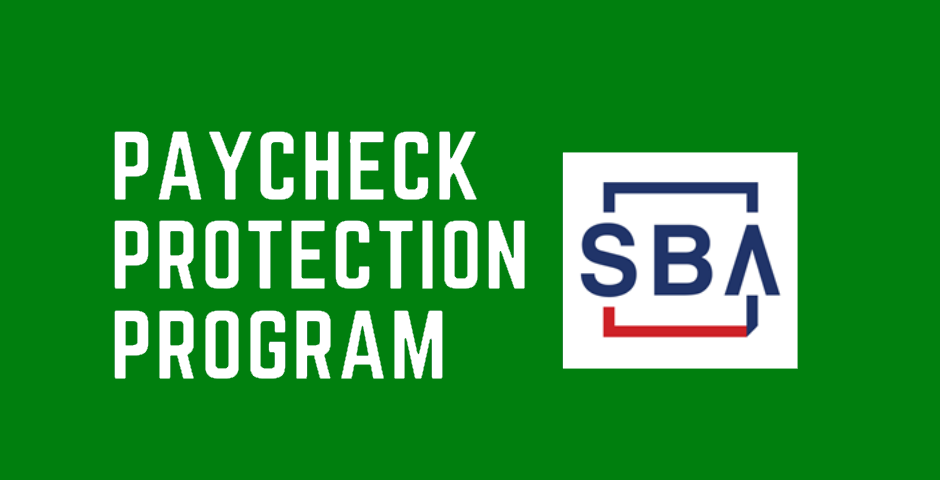The American Institute of CPAs (AICPA) and over 80 additional organizations have expressed concern about the new Paycheck Protection Program (PPP) “Loan Necessity Questionnaires.” The questionnaires (SBA Forms 3509 & 3510) were recently established by the Department of Treasury (Treasury) and the Small Business Administration (SBA) and require PPP borrowers with loans of $2 million or greater to complete a new form and provide extensive, burdensome documentation supporting their request for relief funds.
In letters to House Representatives Nancy Pelosi and Kevin McCarthy, Senators Mitch McConnell and Charles Schumer, Treasury Secretary Steven Mnuchin and SBA Administrator Jovita Carranza, the coalition, which represents millions of American workers and small businesses, suggests that existing PPP Forgiveness Applications – specifically, SBA Forms 3508, 3508EZ and 3508S – should continue to be used because they “…allow the agencies to examine, in greater detail and prior to the approval of loan forgiveness, relevant facts to ensure that the PPP loan funds were used in the way Congress intended.”
In their letter the organizations provide a common-sense solution, recommending that if the agencies need more information about the necessity or suitability of a PPP loan, they require the borrower to provide a narrative statement and any documentation the borrower believes is appropriate to demonstrate that the loan was critical to support its ongoing operations.
This proposal aligns with earlier AICPA recommendations for borrowers to maintain records of the factors that informed their decision to apply for the loan including the areas of uncertainty impacting operations. In a recent Journal of Accountancy article, Barry Melancon, CPA, CGMA, AICPA president and CEO said, “We previously recommended that [borrowers] keep contemporaneous records of what a business was dealing with, anticipating and deciding back at the time of the PPP loan.”
Melancon added that accountants have the opportunity to help businesses put the reasoning behind their PPP application into the context of the pandemic’s early days, when the length and severity of business shutdowns were unknown. “We all know it was much different than what we know today,” he said. “I think that is important to be communicated.”
“We strongly believe that the vast majority of small businesses needed their PPP loan to stay in business and retain employees, and many still need additional financial support. These ongoing changes and new requirements could impact future business decisions on applying for more relief,” said Erik Asgeirsson, president and CEO of CPA.com, an AICPA subsidiary that brings innovative technology solutions to the accounting profession. “AICPA’s goal since the beginning of the pandemic has been to support the implementation of the CARES Act and PPP. We have initiated several programs, including regular Town Hall meetings, our PPP Forgiveness Tool and a small business funding coalition to protect and stabilize our nation’s economy and help accounting professionals who are essential to business recovery.”
In the letter, AICPA and the other signatories identified policy and operational concerns, including the following:
- The questionnaires focus on the wrong timeframe during which the PPP loan must be assessed. They seek gross revenue comparisons between 2020Q2 and 2019Q2 and other metrics and narratives that describe how the borrower has fared during the pandemic. However, borrowers were required to certify in good faith that the loan was needed at the time of the request. “Any circumstances that happened after the certification was made and throughout the pandemic should have no bearing on evaluating the borrower’s good fair statement at the time it made the certification,” the letter says.
- The new forms ask for liquidity and revenue data, which could expose the personal finances of small business owners. The letter states that “The CARES Act did not include a means-based test, revenue reduction test, liquidity test or any other metric to assess financial standing in order to assign prioritization of PPP loans to certain borrowers over others.”
- Questions about revenue and liquidity data signal a bias against PPP borrowers who survived or remain profitable during the pandemic. Steady or increased revenue with healthy liquidity and continuing employment is a sign that the PPP loan was successful.
- Other questions raise concern that a borrower’s answer may lead to a misinformed analysis by the agencies. For example, requests for statements on whether closures or changes in operations were mandatory or voluntary and details on which governmental jurisdiction mandated the closures.
- The questionnaires apply impractical compliance deadlines on borrowers and lenders that would be impossible in many cases. “The nine-page questionnaire demands a level and type of reporting never previously required from borrowers by statute or in any process in PPP lending thus far,” the letter states
Visit the AICPA’s Coronavirus Resource Center for more up-to-date information, news and tools that help accounting professionals navigate the pandemic.
Thanks for reading CPA Practice Advisor!
Subscribe Already registered? Log In
Need more information? Read the FAQs




